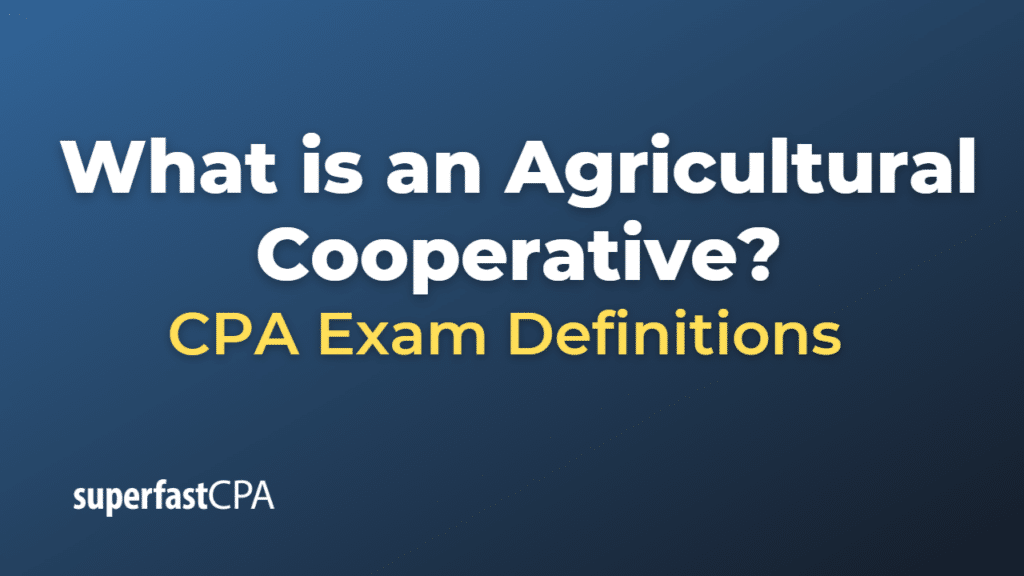Agricultural Cooperative
An agricultural cooperative, also known as a farmers’ co-op, is a type of cooperative organization where farmers pool their resources and work together to achieve common goals. These goals may include achieving economies of scale, improving bargaining power, sharing risk, and accessing markets more effectively. Agricultural cooperatives can take various forms and engage in different activities, such as:
- Production cooperatives: Farmers collaborate in the production process, sharing resources like land, machinery, and labor to grow crops or raise livestock more efficiently.
- Marketing cooperatives: Farmers work together to market and sell their products collectively, enabling them to negotiate better prices and access a wider range of buyers.
- Supply cooperatives: Farmers join forces to purchase inputs like seeds, fertilizers, and equipment at lower prices due to bulk purchasing power.
- Processing cooperatives: Farmers process their raw agricultural products together, such as turning milk into cheese or converting grains into flour, to add value and generate higher returns.
- Credit and financial cooperatives: Farmers pool their financial resources to provide credit, loans, and other financial services to their members, often at more favorable terms than commercial banks.
Agricultural cooperatives are typically owned and controlled by their farmer-members, who share in the profits and decision-making processes. They can help farmers to be more competitive, reduce costs, and gain access to resources and services that might be difficult to obtain individually.
Example of an Agricultural Cooperative
Here’s an example of a well-known agricultural cooperative:
Organic Valley is a prominent agricultural cooperative based in the United States, founded in 1988. It is comprised of over 1,800 family farms across the country, focusing on organic agriculture and sustainable farming practices. Organic Valley’s farmer-members produce a wide range of organic products, including milk, cheese, butter, eggs, and produce.
By forming a cooperative, the individual farmers who are part of Organic Valley benefit from collective marketing, distribution, and negotiating power. This enables them to access larger markets, secure better prices for their products, and reduce costs associated with marketing and distribution. The cooperative structure also ensures that profits are returned to the farmer-members, allowing them to invest in their farms and maintain sustainable practices.
In this example, Organic Valley demonstrates how an agricultural cooperative can help small, organic farmers compete in a market dominated by larger, conventional agricultural businesses while adhering to their shared values and principles.













